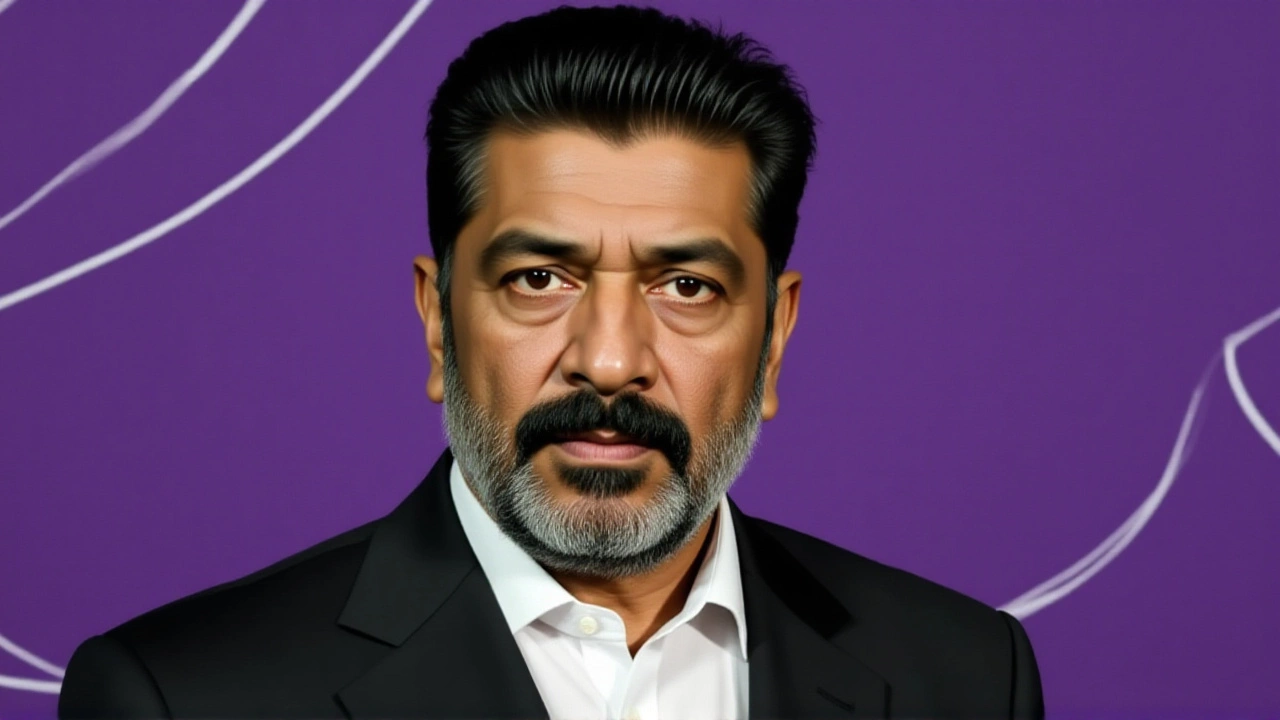A manager at UCO Bank didn’t just deny leave—he mocked grief. On September 14, 2023, when Assistant Manager Vikram Singh’s mother died in Jaipur, his request for compassionate leave was rejected with a chilling remark: "Everyone's mother dies, don't be dramatic." That quote, along with others like "Are you a doctor? Either come to office or take LWP," came from RS Ajith, the Chennai Zonal Head of UCO Bank. The email detailing these incidents, written by 38-year-old branch manager Rajesh Kumar from Nungambakkam, was sent internally on October 26, 2023, and leaked to social media the next day. Within 72 hours, it had been viewed over 427,000 times on X (formerly Twitter), sparking national outrage.
The Human Cost of Bureaucratic Indifference
The email didn’t just list complaints—it painted a portrait of emotional cruelty disguised as policy. On October 3, 2023, Deputy Manager Arjun Mehta’s one-year-old daughter was fighting for her life in the ICU at Apollo Children's Hospital in Chennai. He begged for two days off. Ajith’s reply? "Are you a doctor? Either come to office or take LWP." Mehta stayed at the hospital. He was marked absent without pay. Three weeks later, his daughter recovered—but the trauma didn’t.Then there was Sanjay Patel, a 35-year-old Branch Officer whose wife was rushed to Fortis Malar Hospital with acute appendicitis on September 28, 2023. He asked for emergency leave. Ajith allegedly told him: "You're useless anyway." Patel returned to work the next day, still in shock. These weren’t isolated cases. Kumar’s email cited over a dozen similar incidents in the past year—all occurring under Ajith’s watch at Phoenix Citadel, 859 Anna Salai, Teynampet, Chennai.
A Culture Built on Fear, Not Leadership
What’s worse than the quotes? The silence that followed. Employees told Kumar they were too afraid to speak up. One officer said he’d seen colleagues cry in the restroom after being denied leave for a parent’s funeral. Another admitted he skipped his sister’s wedding because he feared being labeled "unreliable." In a public sector bank that employs over 40,000 people nationwide, this isn’t just poor management—it’s institutionalized dehumanization.UCO Bank, founded in 1943 and nationalized in 1969, prides itself on serving rural and semi-urban India. With 3,095 branches and ₹3,87,341 crore in assets as of March 2023, it’s supposed to be a pillar of financial inclusion. Yet here, in the heart of Chennai, frontline officers were treated like replaceable cogs. "We’re not robots," one anonymous employee told a journalist. "We’re the ones who greet customers at 7 a.m., handle cash shortages, and calm down angry retirees. But when our own mothers die? We’re told to get over it."

Why This Resonates Beyond Banking
This isn’t just about UCO Bank. It’s about a wider rot in India’s public institutions—where hierarchy is weaponized, empathy is seen as weakness, and compliance is valued over humanity. Similar cases have surfaced in state-run railways, postal services, and even public hospitals. But this one went viral because it was so brutally honest. The language wasn’t corporate jargon—it was the raw, unfiltered cruelty of someone who believes power means never having to say sorry.Even more disturbing? Ajith has held the Chennai Zonal Head role since April 1, 2021. No prior complaints were made public. No disciplinary action taken. The bank’s Central Vigilance Cell confirmed it was investigating as of November 5, 2023—but offered no timeline, no statement, and no assurance of accountability. That silence speaks louder than any quote.

What Comes Next?
Employee unions are now demanding an independent probe, not just an internal one. The Indian Banks' Association has remained silent. Meanwhile, social media campaigns like #UCOBankToxicCulture are trending, with employees from other banks sharing their own stories. Some are calling for mandatory emotional intelligence training for all managerial staff. Others want whistleblower protections rewritten to shield employees who report abuse.For now, Rajesh Kumar remains anonymous to protect his job. But his email lives on. And so do the voices of Vikram, Arjun, and Sanjay—men who didn’t just lose time off. They lost faith in the system.
Frequently Asked Questions
How did the public find out about the email?
The email was first sent internally to UCO Bank’s top management on October 26, 2023. It was leaked to social media by an anonymous whistleblower under the handle @BankingWhistleblower on October 27, 2023. The post included verbatim quotes and employee IDs, triggering immediate viral sharing across X, Reddit, and WhatsApp groups, reaching over 427,000 views by October 30.
Has RS Ajith been suspended or investigated officially?
As of November 5, 2023, UCO Bank’s Central Vigilance Cell confirmed it was conducting an internal investigation, but no disciplinary action has been announced. Ajith remains in his position as Chennai Zonal Head. No public statement has been issued by the bank, fueling skepticism about the independence and urgency of the probe.
What legal recourse do the affected employees have?
Employees can file complaints under the Sexual Harassment of Women at Workplace Act (if gender-based), the Industrial Disputes Act, or even the Indian Penal Code for criminal intimidation or cruelty. While no formal cases have been filed yet, legal aid NGOs like the Centre for Labour and Employment are offering pro bono support to the affected officers.
Why is this case different from other workplace complaints?
Unlike typical HR grievances, this involved explicit verbal abuse tied to life-and-death emergencies, captured in writing and shared publicly. The quotes were not just rude—they were degrading and psychologically violent. The fact that they came from a senior public sector official, not a private CEO, makes it a symbol of systemic failure in India’s most trusted institutions.
Are other UCO Bank branches experiencing similar issues?
While no official data exists, dozens of anonymous employees from Mumbai, Hyderabad, and Lucknow have posted similar stories online since the email went viral. Many describe a "culture of silence" where managers are promoted based on rigid compliance, not compassion. This suggests the problem may be systemic, not isolated to Chennai.
What can be done to prevent this from happening again?
Experts recommend mandatory mental health and empathy training for all managers, anonymous grievance portals with third-party oversight, and a policy that automatically grants emergency leave for bereavement or critical family illness without requiring approval. Some suggest tying promotions to employee satisfaction scores, not just branch performance metrics.

